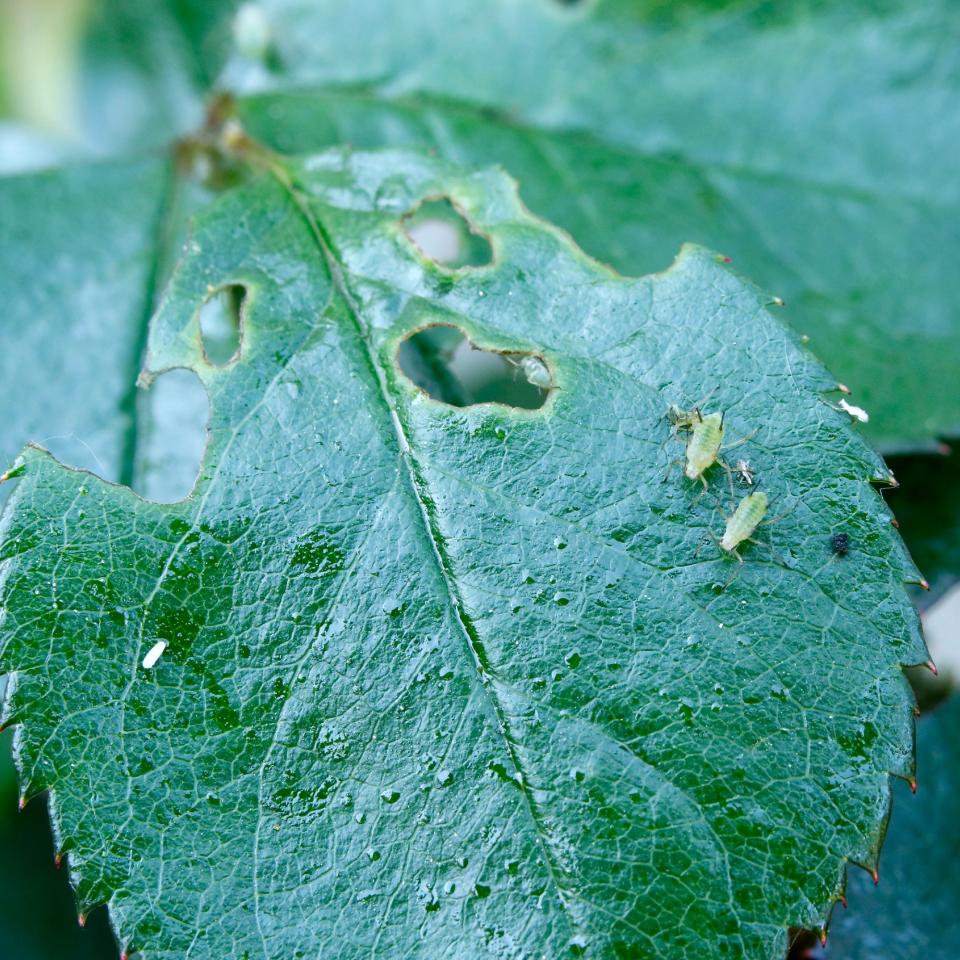How to reuse leftover orange peel in the garden to improve the health of your plants for free

If oranges make up a part of your five a day, then by the end of the week you probably go through several with their peels thrown in the rubbish or the compost bin at best. But when knowing how to utilise them, orange peels can be used in the garden in several different ways.
Repurposing food waste to aid in the wellbeing of our plants is one of the latest garden trends. And one that we love to see as it’s both a money-saving hack and a great sustainable practice.
In the past, we’ve spoken about reusing old coffee grounds and ways to repurpose used tea bags in the garden. And now, it’s orange peel’s turn to get its time in the spotlight. And a place in our gardens.

4 ways to use orange peel in the garden
Once you’ve snacked on your orange or made orange juice for breakfast, make sure to save the peels for your gardening. But you need to have removed the flesh before you start using them in the garden.
1. Fertilise the soil

Orange peel is one of the best natural plant fertilisers, similar to the likes of banana peel and one of the uses of eggshells in the garden. But due to its acidity, you must choose the right, acidic-loving plants to use it on.
‘Orange peels are a great way to add nutrients to your garden, they can add nutrients to your soil, which aids in the growth and maintenance of your plants,’ says Petar Ivanov, gardening expert at Fantastic Gardeners. ‘The most common plants that like orange peels are acidic-loving plants, such as hydrangeas, rhododendrons, and camellias. They are also good for peppers and radishes.’
2. Deter pests

Just as coffee grounds are a great natural slug deterrent, orange peel works wonders against the likes of aphids and white flies.
‘Orange peel seeped in water and sprayed onto plants can help to deter pests such as aphids and white flies. The citrus smell of the peel can also help to deter other pests,’ says Fiona Jenkins, gardening expert at MyJobQuote.co.uk.
The other pests this can potentially work on are slugs and even cats if you have a problem with them pooping in your garden.
‘Keep cats away from your garden because they don’t like the smell of citrus by cutting them into chunks or shredding them and spreading them around your beds,’ Petar suggests.
When it comes to getting rid of slugs from your garden using orange peel, you’ll have to make sure that the citrus smell is strong enough. And that you properly get rid of any orange flesh from the peels.
‘It’s worth noting that slugs and snails can also be attracted to orange peel if it still has some fruit attached. This can often be the case if you’ve cut the peel off your oranges. You needn’t throw this peel away though, as you can use it to lure slugs and snails away from susceptible plants and veggies such as hostas and lettuces,’ Fiona says.
3. Make into seed starters

Using orange peels as seed starters is one of the easiest upcycling ideas for the garden. For this purpose, use the orange peels from half of the fruit that are more or less intact to properly hold the soil and seedlings.
‘You can also make biodegradable seeds starter from orange peels by using the peel as a pot and filling it with dirt. This type of “pot” will break down on its own so you don’t have to worry about removing it,’ Petar explains.
4. Add to compost

And if all else fails, there is the option of adding them in your garden compost. Instead of opting for the kitchen compost bin, add orange peels into your garden compost. When looking into how to make a compost, orange peels will make it more nutritious for your plants and add to the composting process.
‘In the same way that oranges are good for humans, orange peels are great for our gardens too,’ says Steve Chilton, garden expert at LeisureBench. ‘They're great used in compost as they are full of nutrients, as well as nitrogen which is good in compost. I recommend grinding down your orange peel in order for it to add to the compost more quickly, although it's not necessary for it to work.’
Petar adds, ‘You can use them in composting but only if you’re not vermicomposting because the worms in this type of compost don’t like citrus. However, in traditional compost piles, orange peels will add in phosphorus, nitrogen and potassium.’
So save those orange peels instead of getting rid of them. Your garden will thank you for it!


